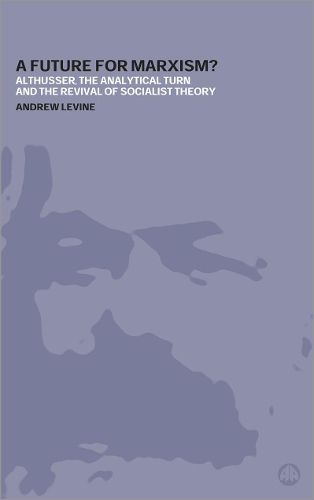Readings Newsletter
Become a Readings Member to make your shopping experience even easier.
Sign in or sign up for free!
You’re not far away from qualifying for FREE standard shipping within Australia
You’ve qualified for FREE standard shipping within Australia
The cart is loading…






In recent years theorists have turned away from Marxism. This book aims to revive Marxist theory, and show how it offers a rich foundation for radical socialist thinking in the future. To do this, Andrew Levine examines two recent departures in Marxist thought - Althusserian and analytical Marxism. The former is currently defunct; the latter, very nearly so. He assesses the shortcomings of each, while emphasizing their considerable, and still timely, merits. The discussion is framed against an analysis of socialism’s place in the political life of the 19th and 20th centuries. Levine assesses the apparent historical defeat of the Left generally since the consolidation of the Reagan-Thatcher era and speculates on current signs of renewal. He argues that both Althusserian and analytical Marxism represent new and deeply important philosophical departures within the Marxist tradition as they force a rethinking of Marxism’s scientific and political project. For all their differences in style and substance, these strains of Marxist thought share important thematic and sociological features and Levine concludes that both traditions provide a legacy upon which a revived Left can build.
$9.00 standard shipping within Australia
FREE standard shipping within Australia for orders over $100.00
Express & International shipping calculated at checkout
In recent years theorists have turned away from Marxism. This book aims to revive Marxist theory, and show how it offers a rich foundation for radical socialist thinking in the future. To do this, Andrew Levine examines two recent departures in Marxist thought - Althusserian and analytical Marxism. The former is currently defunct; the latter, very nearly so. He assesses the shortcomings of each, while emphasizing their considerable, and still timely, merits. The discussion is framed against an analysis of socialism’s place in the political life of the 19th and 20th centuries. Levine assesses the apparent historical defeat of the Left generally since the consolidation of the Reagan-Thatcher era and speculates on current signs of renewal. He argues that both Althusserian and analytical Marxism represent new and deeply important philosophical departures within the Marxist tradition as they force a rethinking of Marxism’s scientific and political project. For all their differences in style and substance, these strains of Marxist thought share important thematic and sociological features and Levine concludes that both traditions provide a legacy upon which a revived Left can build.